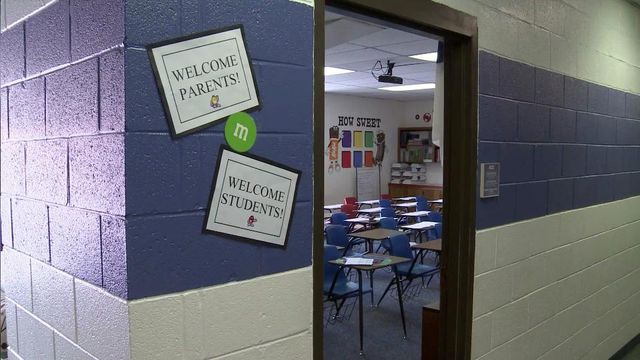Vouchers seen as winning ticket for NC private schools
Although they won't be issued until next March, vouchers that will allow hundreds of students from low-income families to attend private schools across North Carolina already have officials at many schools eagerly anticipating an influx of students.
Posted — UpdatedState lawmakers set aside $10 million in the budget for so-called "Opportunity Scholarships" to help pay private school tuition for about 2,500 students, starting in the 2014-15 school year. Legislative leaders said they plan to ratchet the fund up to $50 million a year after that.
"I hope it will bring in students that we've not had that chance to minister to before," said Linda Barker, a teacher at Raleigh Christian Academy.
Under the program, families can receive $4,200 per year or 90 percent of annual tuition costs, whichever is less. To qualify, a family's annual income must meet the guidelines for free or reduced-price school lunches – although that threshold would increase to 133 percent of those guidelines after the first year.
Applications will be available this fall.
Tuition at Raleigh Christian Academy is about $6,000 a year, and school administrator Dwight Ausley said families struggle with the cost. Enrollment has dropped during the recession.
"I'm just really happy that we've got this voucher program that will help parents make that choice that might be better for their kids," Ausley said.
Karen Duquette, vice president of Parents for Educational Freedom, said the grants will give poorer families the same options as wealthier families for their children's schooling.
"There is truly an academic gap, primarily (among) low-income and minority students, and they're looking for another option," Duquette said.
But Mark Jewell, vice president of the North Carolina Association of Educators, said private schools don't have the same accountability that public schools do and don't offer services poor students need.
"Some of our most vulnerable students are going to be the ones that are left behind – those who can't provide transportation, those who are not provided free and reduced (price) lunch," Jewell said.
Ausley says his school already has many minority and low-income students, some funded through church-paid scholarships, and some students are accepted despite academic challenges.
"We’re a ministry," Ausley said. "We want to help families. We’re not as highly selective as perhaps other schools are. We want to help make a difference in the lives of students."
The NCAE plans to file a lawsuit to stop the program, arguing that taxpayer money shouldn't go to private schools. Supporters say it is constitutional because the checks will be made out to parents who sign them over to the school they choose.
"We do feel like it is a separation of church and state (issue)," Jewell said.
Jewell also said he believes the voucher program violates the state constitution's promise of a "uniform free basic education" for all students.
"When you open the door to vouchers, it’s more or less a false promise, saying that private schools are going to accept every child, when we just know that’s simply not the case," Jewell said.
Related Topics
• Credits
Copyright 2024 by Capitol Broadcasting Company. All rights reserved. This material may not be published, broadcast, rewritten or redistributed.






